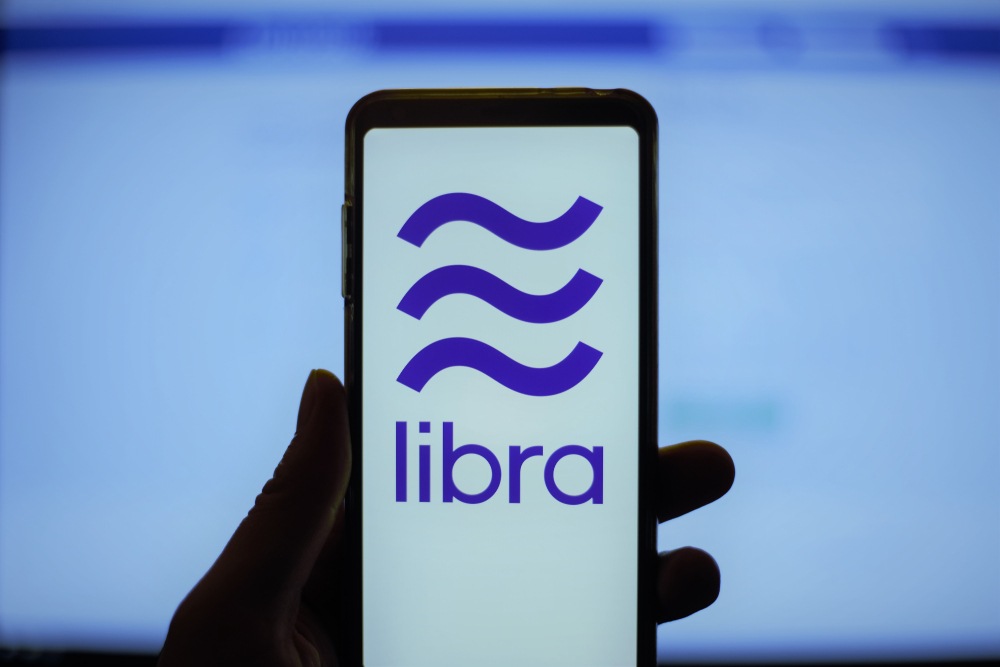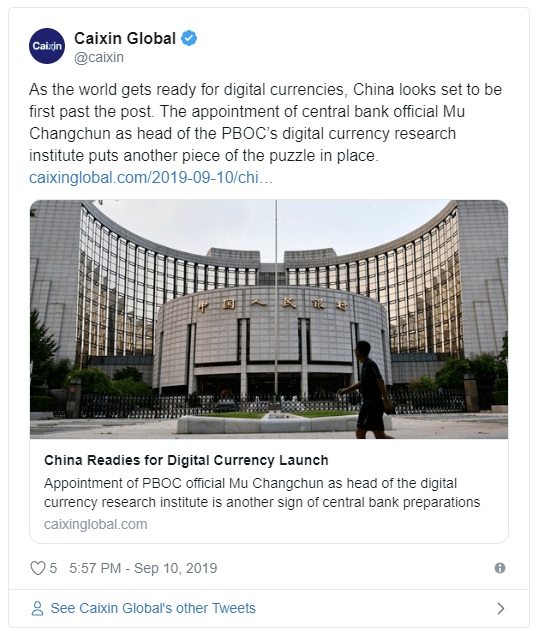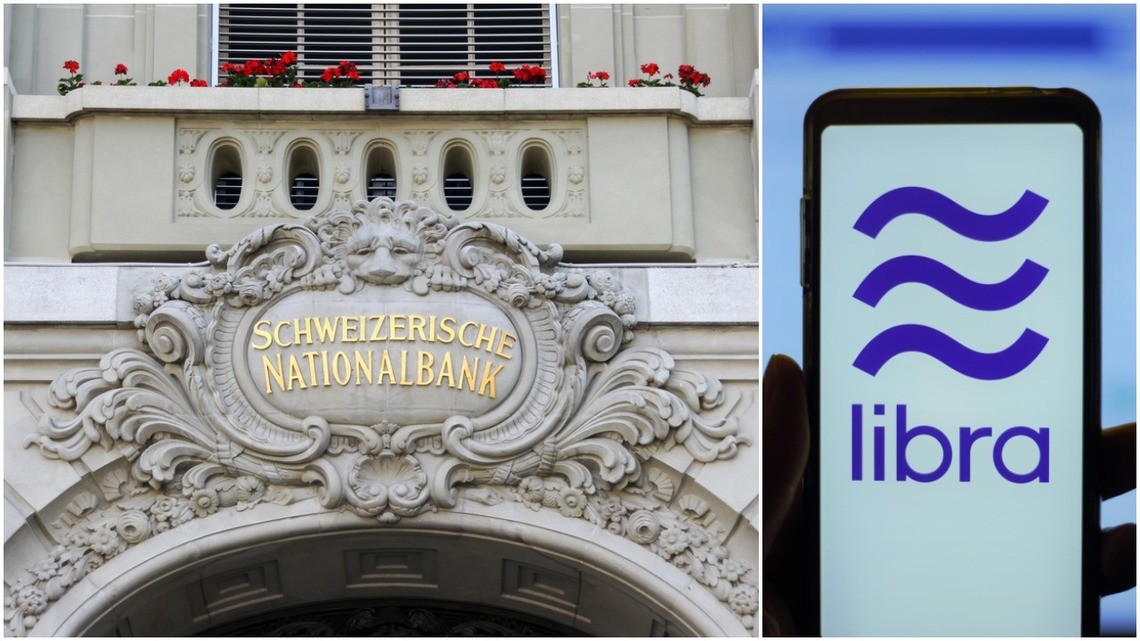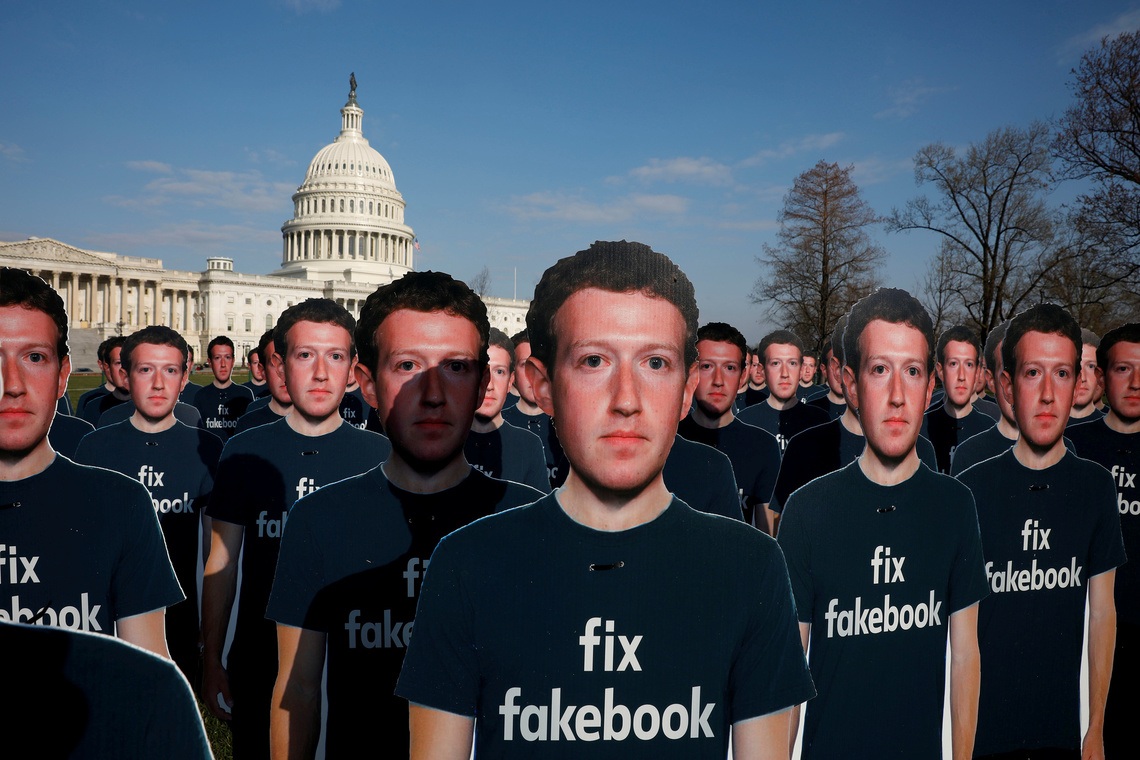Over two dozen central banks will question Facebook over its stablecoin crypto Libra in Switzerland today. | Source: Shutterstock Facebook is set to go through another round of extreme questioning as it goes ahead with the plans to launch its controversial cryptocurrency Libra. The tech giant will face representatives of twenty-six central banks, including the Federal Reserve and the European Central Bank (ECB, in Basel, Switzerland, on Monday. The high-profile interaction would see global regulators dictating their mounting concerns over Libra, a cryptocurrency they see as a threat to financial stability. ECB’s Benoît Coeuré, who will chair the Libra meeting,
Topics:
Yashu Gola considers the following as important: cryptocurrency, Cryptocurrency News, Libra
This could be interesting, too:
Fintechnews Switzerland writes How DeepSeek Could Propel the AI Agent Crypto Market Beyond Meme Coins to Sustainable Business Models
Emily John writes Over 1200 Crypto ATMs Shutdown in US Amid Crash
Christian Mäder writes These Are the 5 Bitcoin Initiatives in the US at the Federal Level
Emily John writes Avalanche Foundation and Rain Launch Crypto Payment Card

Facebook is set to go through another round of extreme questioning as it goes ahead with the plans to launch its controversial cryptocurrency Libra.
The tech giant will face representatives of twenty-six central banks, including the Federal Reserve and the European Central Bank (ECB, in Basel, Switzerland, on Monday. The high-profile interaction would see global regulators dictating their mounting concerns over Libra, a cryptocurrency they see as a threat to financial stability.
ECB’s Benoît Coeuré, who will chair the Libra meeting, assured that the bar for granting the Facebook cryptocurrency a regulator approval in the EU would be “very high.”
Nobody Trusts Facebook
Facebook introduced Libra in July as a proposal to upend the global financial system. The cryptocurrency, as Facebook’s whitepaper read, would become a single unit of account to a pool of world currencies, including the US dollar, Pound, and Euro. It would be launched upon a private blockchain supported by dozens of large, global corporations from across a spectrum of industries, therefore cutting the need of Swift, IBAN to confirm global transactions.
But lawmakers and regulators don’t treat Libra as a revolution. On the contrary, they think the project is attempting to undermine the sovereignty of government and regulatory bodies by acting as a de-facto currency manager. Concerns such as those earlier led a US Senate committee to blast Facebook executive David Marcus in a recent Capitol Hill hearing. Senators slammed the company for even thinking about launching a far-reaching finance project, especially in the wake of its repeated privacy breaches on the social media front.
….Similarly, Facebook Libra’s “virtual currency” will have little standing or dependability. If Facebook and other companies want to become a bank, they must seek a new Banking Charter and become subject to all Banking Regulations, just like other Banks, both National…
— Donald J. Trump (@realDonaldTrump) July 12, 2019
Libra drew similar reactions from the regulators and lawmakers outside the US. France’s Finance Minister Bruno Le Maire suggested blocking the launch of Facebook cryptocurrency in the European Union. Remittance-rich countries like China and India also vowed to refuse entry to Libra, fearing it would undermine their local payment industry.
On the Basel meeting, Libra representatives said they welcome such conversations with the regulators. They told FT:
“We welcome this engagement and have deliberately designed a long launch runway to have these conversations, educate stakeholders and incorporate their feedback in our design.
Libra Competitors Abound
Mr. Coeuré recognized that central banks need to up their research and development to limit Libra’s foray into the finance space. He called the Facebook cryptocurrency a “wake up call” for banks to make consumer payments faster and cheaper, hinting at the development of central bank digital currencies.
Meanwhile, global central banks have expressed the possibility of issuing a rival cryptocurrency to limit Libra’s exposure. Like Mr. Coeuré, Christine Lagarde, the ECB’s incoming president, have supported central banks creating their digital currencies.
Meanwhile, the People’s Bank of China is reportedly set to launch its digital currency in November. The central bank has denied the reports but admits that its cryptocurrency is ‘almost ready.’
Last modified (UTC): September 16, 2019 8:36 AM






